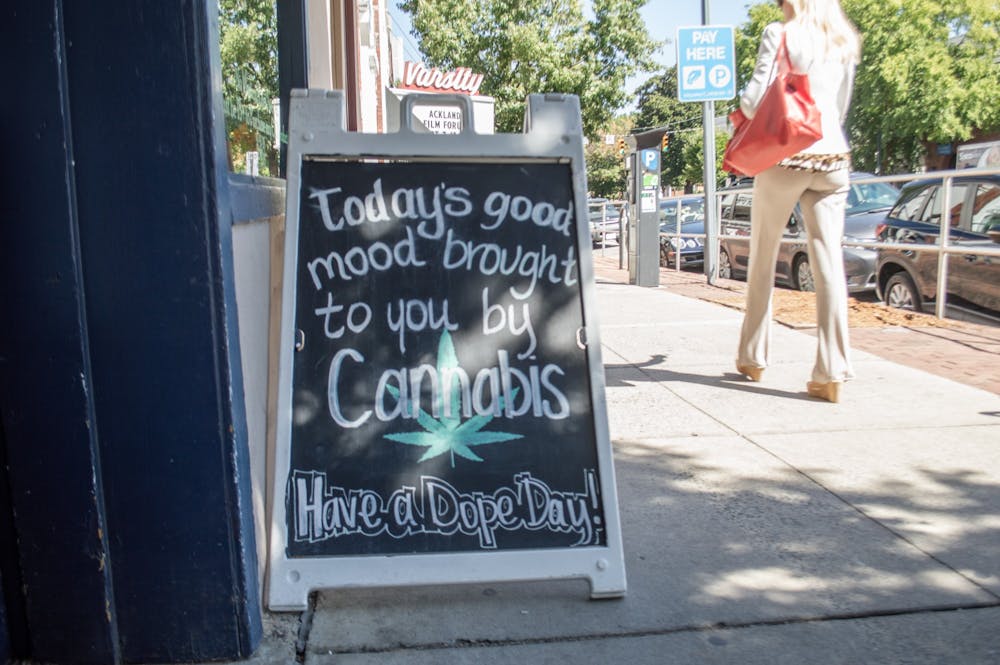In my wealthy suburban hometown, dads are getting high on the golf course on Sunday afternoons, and the cannabis industry is catching on. High-end dispensaries are popping up all over the country, but do we really need this kind of industry gentrification when there are thousands of marginalized individuals incarcerated for simple possession?
A recently published New York Times article, "High Design: The Revolution Taking Over Cannabis Dispensaries," captures the luxury cannabis industry's growth perfectly. Informal dealers and back alley dispensaries no longer meet the wants and needs of the growing demographic of cannabis users. Many dispensaries are now focusing on modern decor and a soothing customer experience.
The Green Qween, a dispensary in Los Angeles, looks more like a museum than a dispensary, complete with glass display cases. Taylor Bazley, one of the owners, told the New York Times, “This is a place to look and learn. A lot of (the) brands are very new, and we’re hoping to create fun moments of consumer discovery.”
While it’s fun to poke around an aesthetic dispensary and post it on your Instagram story while someone selects custom weed for you, the concept of elevating the cannabis-purchasing experience is classist.
Regardless of state legality, these dispensaries are sending the message that it’s okay for non-marginalized people (such as the country club dads I previously mentioned) to consume cannabis, but Black and brown people who are disproportionately incarcerated for possession are criminals.
According to the American Civil Liberties Union, white people and Black people use cannabis at roughly the same rate, but Black people are nearly four times more likely to be arrested for marijuana possession. In Iowa, Washington, D.C., Minnesota and Illinois, Black users were 7.5 to 8.5 times more likely to be arrested for marijuana possession than white users. Unfortunately, over-policing aimed at communities of color is a major factor in the disproportionate arrests, as seen in these statistics.
Cannabis reformers, such as New Yorker Dasheeda Dawson, want to use these statistics to propel a legitimization of the cannabis industry for the protection of these vulnerable communities. She leads Cannabis NYC, a city effort to support cannabis entrepreneurs and provide regulation. She has become an advocate for marijuana legalization, hoping to use it to reduce health disparities and repair the damage of mass criminalization.
So, while people like famous actor Woody Harrelson are opening Earth-themed sensual dispensaries to make money and take advantage of the movement, people like Dasheeda Dawson are fighting for true reform because they have witnessed the effects of biased marijuana-related violence.
Marijuana decriminalization is a common interest, but elevating the industry distracts from the discriminatory nature of drug arrests.




